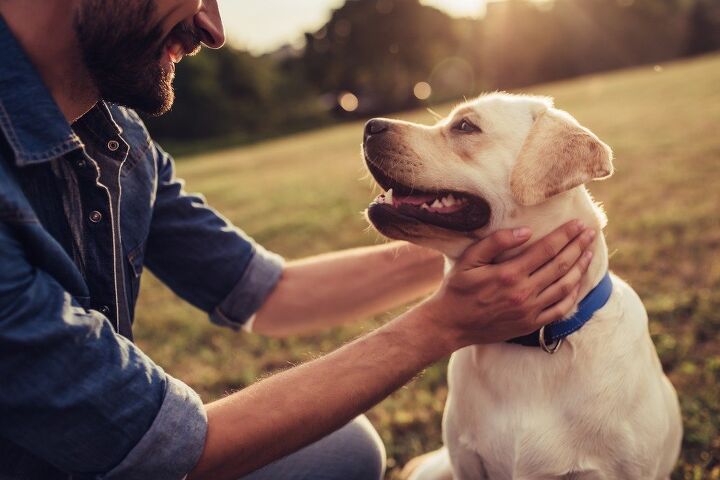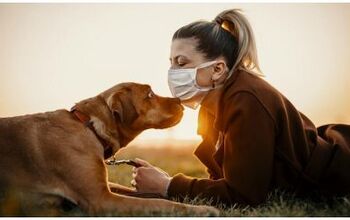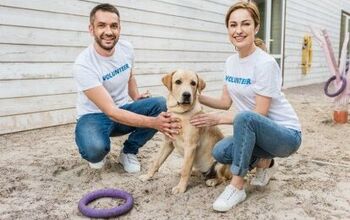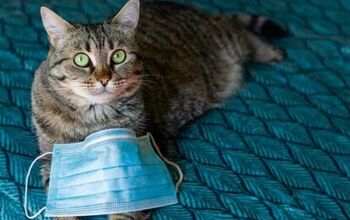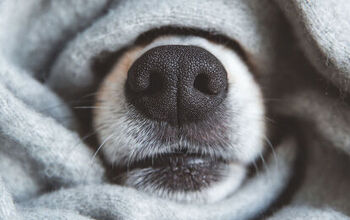What Experts Say You Need To Know About COVID-19 And Your Dog

The information about COVID-19 may seem elusive, with so much still being unknown about the virus. What we do know changes often, and when it comes to our pets, we want to be up-to-date with expert advice. That’s why we talked to Dr. Jerry Klein, who is the Chief Veterinary Officer of the American Kennel Club to give us some straight talk.
There’s a lot of confusion and misinformation running around with regard to COVID-19, and because it has led some to dump their pets out of fear and misguidance, we wanted to talk with experts to get you the information you need to know. We were privileged to interview Dr. Jerry Klein. He’s the Chief Veterinary Officer of the American Kennel Club, and he answered some really important questions for us.
Dr. Klein: According to the American Veterinary Medical Association (AVMA), the current expert understanding is that COVID-19 is primarily spread from person-to-person. That said, there have been two dogs in Hong Kong that have tested “weak positive” for the virus and one cat in Belgium that tested positive for the virus.
The first dog that tested positive was first tested on February 26, 2020 due to the owner having tested positive for the virus. The dog showed no signs of illness. According to the AVMA, that first dog was a 17-year-old Pomeranian with ongoing health issues. After being held in quarantine for 14 days, the dog tested negative on 2 occasions and was then returned to the owner. The dog died subsequently died after being returned to its owner. The AVMA indicates that the death was likely the result of the dog’s ongoing health issues rather than as a result of COVID-19. Media reports at the time indicated that the owner declined to allow an autopsy of the animal to determine its cause of death. There has been a second dog that tested positive at a later date, also from Hong Kong, who is suspected to still be in quarantine. As of now, there have not been any reports of it exhibiting any signs of illness.
On March 18, Belgium reported that a cat with both digestive and respiratory symptoms tested positive for the virus. The cat’s owner also had been diagnosed with COVID-19. The AVMA reports that it “does not currently have information regarding what other conditions” were considered for this cat. The situation is still being investigated.
The CDC says it has not received any reports of pets or other animals becoming sick with COVID-19 in the United States. Additionally, IDEXX, a leading veterinary diagnostics firm, reports that it tested thousands of cats and dogs and not one tested positive for COVID-19. Here is a link to their news release on the topic.
Information is changing rapidly. Veterinarians should continue to monitor information from the CDC, AVMA, and other reliable sources.
Dr. Klein: According to the U.S. Centers for Disease Control (CDC), the American Veterinary Medical Association (AVMA) and others, to date, there is no reason to believe that any animals in the United States are the source of COVID-19.
Dr. Klein: Although there have been no reports of pets in the United States contracting COVID-19, the CDC advises that people with COVID-19 limit their interaction with pets and other animals. Questions remain unanswered as to if and how long this virus can live on hair or fur. Specifically, people with COVID-19 should maintain separation from pets just as they would with other people and avoid direct contact with pets.
Anyone diagnosed with COVID-19 should AVOID the following interactions with pets:
- Petting
- Snuggling
- Kissing the pet
- Being licked by the pet
- Sharing food with pets
Sharing household items such as dishes, bedding or towels with pets.
The CDC and others suggest that when possible, a healthy household member should be designated to care for pets in the home. Service animals should be permitted to remain with their handlers.
If the individual sick with COVID-19 must care for pet(s), including service animals, they should:
- Thoroughly wash their hands before and after caring for pets
Wear a facemask when caring for or interacting with the pet
This practice should continue until they are medically cleared to return to normal activities. Veterinarians and pet owners should continue to monitor news about COVID-19 from the CDC.
Dr. Klein:As domesticated dogs crave a bond between themselves and their human, your presence alone gives them a sense of security. Dogs also can sense changes in routine and in an owner’s mood and feelings. We do know that dogs respond to an owner’s feelings of happiness, anger, sadness, and even anxiety.
Now is the time to have one on one time with your dog such as doing tasks or chores that you might usually hire someone else to do.
Some examples are one on one walks, playing games or sports, such as fetching or agility. Even training and obedience exercises are quality time. Grooming your dog, even if it is not “fancy clipping,” just combing and brushing, nail trimming and providing daily dental hygiene ensures you’re giving your undivided attention to your dog and he or she will perceive it as attention spent strictly on them. And it will be a “win-win” situation for both of you! As always, pet owners should be sure to wash their hands before and after interacting with their pets.
For this reporting, Dr. Klein referenced the Centers for Disease Control, The World Health Organization, The World Organisation for Animal Health and The American Veterinary Medical Association.

More by Lori Ennis



